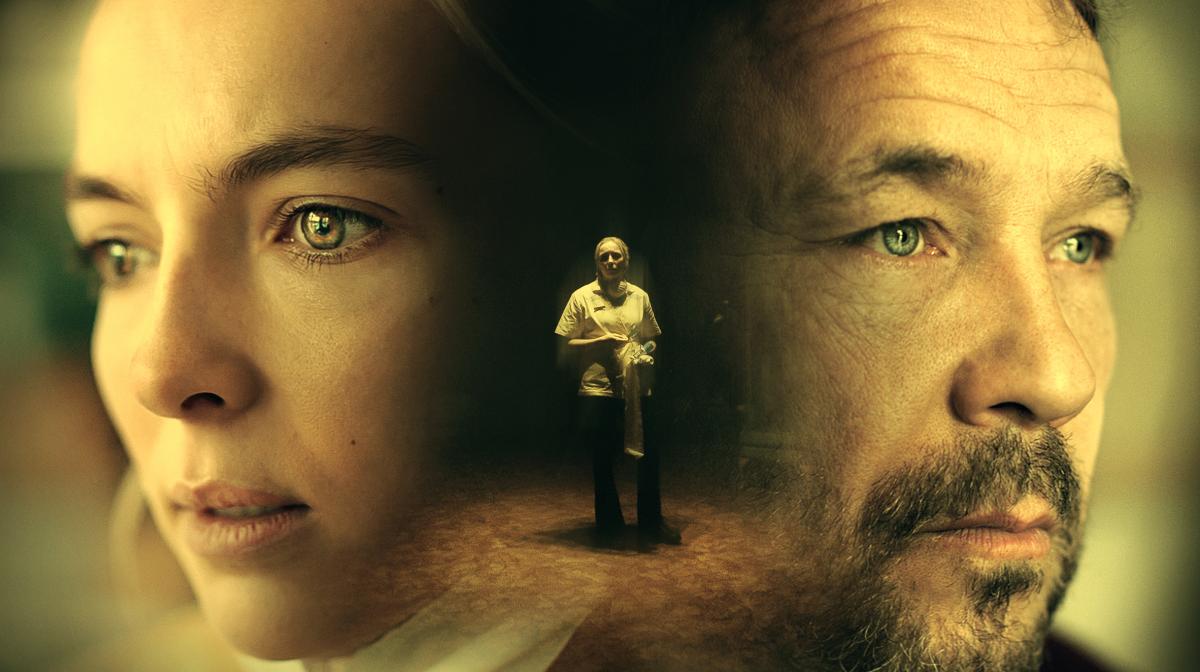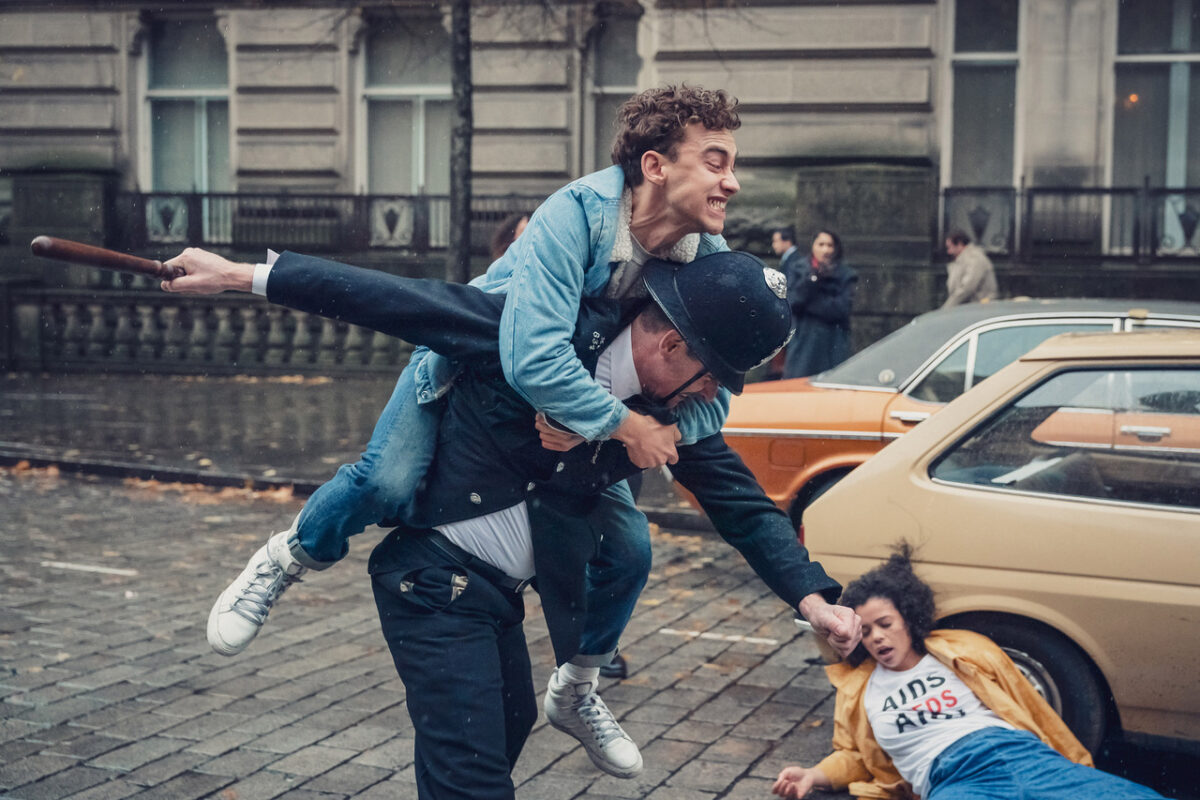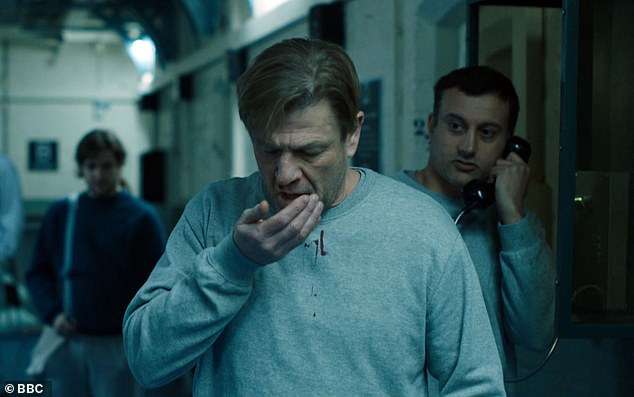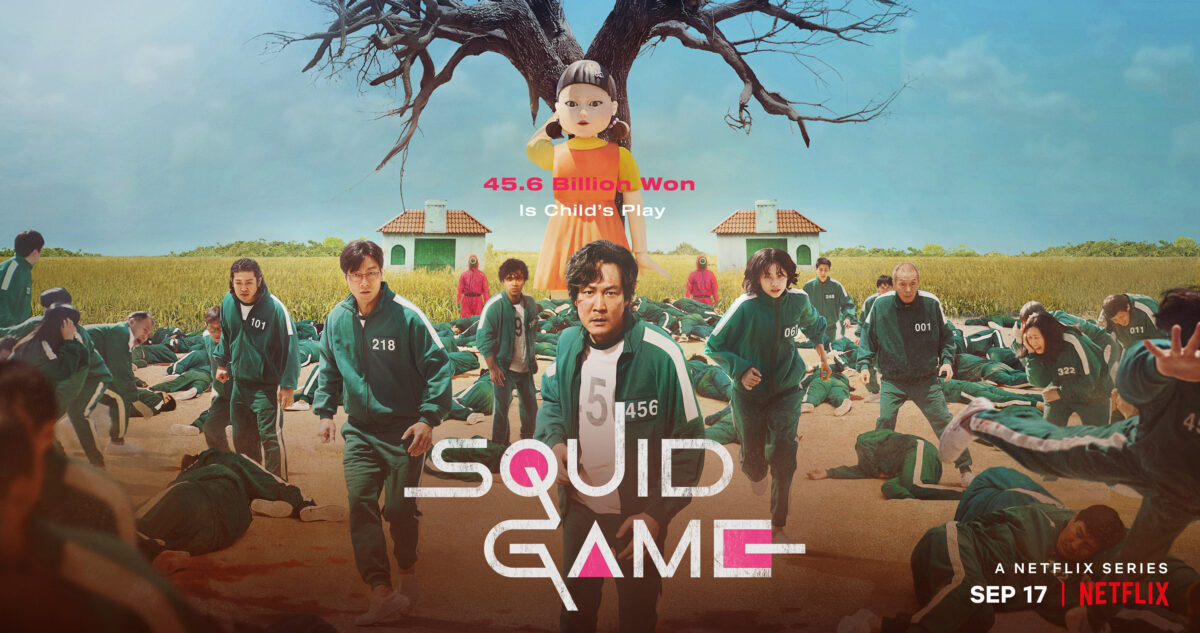My choice this year is conditioned by what I was able to access. Succession and the Mare of Easttown are supposed to be very good but I have not caught up with them yet. Certainly the streaming platforms like Netflix and Amazon Prime have resulted in greater choice – but quality programming you have to look for. Below are some of my favourites TV dramas released in 2021.
Help (Channel 4, All4 streaming)

This is the best ‘Covid drama’ so far in my opinion. Help starred Jodie Comer of Killing Eve fame and Stephen Graham as a care home worker and resident respectively. It graphically shows how the care sector was unprotected and thousands were needlessly left to die as government policy was to protect the NHS and the economy at all costs.
The central scene filmed in real time shows the Cromer character Sarah having to deal alone with a resident having a crisis at night. Sarah calls the NHS helpline which is continually occupied, her manager who is powerless to do anything and the on call doctor is unobtainable. In the end she has to seek help from Graham, who plays Tony, another resident with psychological problems, to assist in turning the ailing resident onto his front. All this is done while trying to use makeshift personal protection equipment.
Little training had been given to this careworker, who had few formal qualifications. Her quick action shows the potential of so-called unqualified people. Sarah discovers that she is good at this job and develops a very supportive relationship with Tony.
Some critics felt the ending a bit melodramatic as Sarah leaves the home with Tony to protect his state of mind. However, given her troubled background and rebelliousness, it is all quite believable. As well as exposing the callousness of government policy this drama also questions the whole model of care.
It’s a Sin (Channel 4, All4 streaming)
In a recent interview show creator Russell Davies has said this was the drama he had been wanting to write for some years, judging it one of his best works. This is personal, Davies lived through the horror of the initial HIV epidemic and the failure of the government and health institutions to respond correctly. Characters in the drama are directly modelled on people he knew or talked to later.

You would think a drama about AIDS would be extremely harrowing and dark. There is tragedy but also humour and a joyous embrace of life, passion and relationships. The story follows the lives of a group of gay men with one straight woman (Jill played by Lydia West) who all share a house. The response of the government pushes them to demonstrate and get involved in campaigns to raise consciousness about the disease, to demand proper treatment and resources for research. Remember at the time the media called it the ‘gay plague’ and the official response with its clumsy gravestone advertisements was totally inadequate.
It’s a sin captures how a pervasive atmosphere and historic prejudice meant many families refused to recognise their son’s illness as AIDS. Men were excluded from caring for their sick and dying partners or even attending the funerals. One of the closing scenes includes a telling exchange between Jill and a mother who has excluded her son’s friends from contact with him. Jill states the situation really all did come down to seeing homosexuality as a sin.
I thought the main character’s passionate deathbed acceptance to his mum of all his sexual encounters as pleasure and fun really moving too. It is difficult to watch the series without a few tears.
The Maid (Netflix)
This drama is a strong, compelling portrait of life on the poverty line in the US. It stars Rylea Whittet, the most natural, believable child actor in years, as Maddy. Margaret Qualley is Alex, her mother, who does everything to care and retain custody of her child. Andie MacDowell is brilliant playing Alex’s New Age, gullible artistic mother.
It is rare to see drama honestly portraying the struggle of people working on a minimal wage. Alex is pushed into poverty as a result of her partner’s abuse. She is homeless and the local welfare system is very limited. Alex has to pass through a number of bureaucratic hoops to get any support. Living in a halfway house, Sarah has to live alongside ex-prisoners and people with mental health problems.
We see the reality of working as a domestic cleaner, shown the detail and the dirt as well as the incredibly low hourly wage. An innovative touch is the way the money she spends and what is left regularly flashes up on screen. At the same time the magnificent homes she cleans reflect the enormous inequality in US society.
There is a scene where we see the rich owner of one of these houses talking despairingly to Alex about her husband. He had just announced he wanted a divorce on the way to a Thanksgiving celebration. However this does not become the liberal narrative of how the rich are as unhappy as the poor, later in the same episode Alex pointedly explains how the rich enjoy life more that the poor precisely because they have money.
It deals effectively with feminist and class issues without reducing Alex to being a hopeless victim without agency. You could say this is American TV doing a Ken Loach, which is the best compliment you can make.
Time (BBC1 and Iplayer)
Jimmy McGovern is one of our greatest TV dramatists and one of the few who represent the working class honestly on screen. This is his take on prison life in capitalist Britain. We experience it through the eyes of former teacher Mark Cobden (Sean Bean) who is in prison for the first time for killing someone while drunk driving. Stephen Graham plays the prison officer who is supportive to Mark but then is himself forced to betray his professional ideals. The gangster ruling the prison puts pressure on him by threatening violence against his son who is serving time in another prison. These parallel stories are brought together brilliantly and we are kept on tenterhooks about the final outcome right till the end of the drama.

Sean Bean gives one of his most convincing performances. Playing against type, this is not Bean in a heroic role. Mark is not a character we would normally sympathise with. A drunk who has killed an innocent person. Riven by guilt he tries his best to repent and try to do good. Helping other prisoners with their English and tries to ask forgiveness from his victim’s wife. Sean Bean communicates this through silences, physical expressions and few words.
The prison officer character is a clever creation by McGovern. It explains that the problems with the prison system is not the nasty guards (although they exist) but it is the system, which fails totally in one of the aims that prison sets itself – to rehabilitate criminals. Along the way, unproductive boredom, a prevalence of drugs, suicides, gangsters and violence, are realistically dramatised.
We reviewed the drama in more detail earlier this year.
Squid Game (Netflix)
Spoiler alert
This week the Ghislaine Maxwell sexual abuse case demonstrated how the super rich paedophile Epstein used his power and wealth (aided by Maxwell) to act above the law with complete impunity. Squid Game – the South Korean drama phenomenon which has been watched by a huge worldwide audience – shows an extreme version of the same thing.

Like much of the best drama the story is simple. Four hundred and fifty-six debt-ridden contestants compete in a horrific gameshow. The winner goes home with 4.6bn won(£28m) and all losers are killed on the spot. Like the terrific Korean film, Parasite, it is a parable of late capitalist society. Money debt creates desperate human beings who are lured into an individual solution that requires you to risk almost certain death and compete in a barbaric, ruthless way with your fellows.
On one level it is an extreme satire on the competitive game or reality shows that are preponderant on TV today where the contestants are sometimes whittled down by ‘popular’ vote. There is a clever riff on the limits of capitalist democracy when the Squid game contestants are allowed to vote to stop the game but the dangling of the big container of money over their heads pushes a slim majority to keep it going.
The drama’s impact is enhanced by the fantastic sets, the music, the colours and the spectacle of the games themselves. Half of the games are modelled on the games children played in Korea which infuses the savagery with a certain poignancy. We are drawn into the games, how would you survive, what are the best tactics. Already the uniforms with masks depicting the different hierarchy of the Squid Game have become iconic – a bit like the women’s red dresses from the similarly dystopian The Handmaids Tale (based on the Atwood novel).
Despite the objective constraints of the games squeezing out any solidarity or positive human actions there is a doomed attempt by a group to cooperate in order to survive. The main character, who ultimately survives, also expresses some hope. His actions after the game ends reinforces this.
The final games ram home the evil of the rich and powerful who ultimately control the game. They are seen as grotesque men who represent an international plutocratic class. They recline on gilded couches amid sculpted erotic female figures. Viewing the games close up and unseen, they bet on which contestants would survive.
At the very end the hero asks the main organiser of the game why he does it. His reply that it derives from a boredom with life that somehow mirrors the frustrations of the poor clearly belies the reality exposed in the drama. It is the impunity of power derived from accumulated wealth that is key to understanding why.
A fuller discussion of the drama by Rowan Fortune was published on this site earlier this year.
Art Book Review Books Campism Capitalism China Climate Emergency Conservative Government Conservative Party COVID-19 Creeping Fascism Economics EcoSocialism Elections Europe Far-Right Fascism Film Film Review Fourth International France Gaza History Imperialism Iran Israel Italy Keir Starmer Labour Party Long Read Marxism Marxist Theory Migrants Palestine pandemic Police Protest Russia Solidarity Statement Trade Unionism Trans*Mission Ukraine United States of America War

